-
-
bullet holes at the General Post Office, Dublin,
I spent hours rereading Irish history (from the Great Famine, aka the Potato Famine 1845-1852, through the Easter Rising 1916), and the poems of Padráig Pearse (Patrick Henry Pearse). He was gifted with words, and was chosen to be spokesman for theEaster Rising in 1916. He wrote of a mother’s heart awash in the blood of sons who fought for country in his poem "The Mother," something I can relate to, at least in part. (I have not had a son at war, but I have experienced childbirth, and a mother's heart.)
 Padráig, his brother Willie and thirteen others were executed after the rebellion, after being held in the Kilmainham jail. Into our psyche all this bloody history
Padráig, his brother Willie and thirteen others were executed after the rebellion, after being held in the Kilmainham jail. Into our psyche all this bloody history About the photos: I took the photo at top in front of Dublin's General Post Office in 2007 to document the bullet holes from the 1916 Easter Rising. When I took the picture, I did not even see the man in the background. Later, someone pointed out the remarkable and eerie resemblance to Padráig Pearse (second photo), who proclaimed an Irish Republic practically on the same spot where the man in my photo stands.
BY RUTH MOWRY
Easter, 1916
I have met them at close of day
Coming with vivid faces
From counter or desk among grey
Eighteenth-century houses.
I have passed with a nod of the head
Or polite meaningless words,
Or have lingered awhile and said
Polite meaningless words,
And thought before I had done
Of a mocking tale or a gibe
To please a companion
Around the fire at the club,
Being certain that they and I
But lived where motley is worn:
All changed, changed utterly:
A terrible beauty is born.
That woman's days were spent
In ignorant good-will,
Her nights in argument
Until her voice grew shrill.
What voice more sweet than hers
When, young and beautiful,
She rode to harriers?
This man had kept a school
And rode our wingèd horse;
This other his helper and friend
Was coming into his force;
He might have won fame in the end,
So sensitive his nature seemed,
So daring and sweet his thought.
This other man I had dreamed
A drunken, vainglorious lout.
He had done most bitter wrong
To some who are near my heart,
Yet I number him in the song;
He, too, has resigned his part
In the casual comedy;
He, too, has been changed in his turn,
Transformed utterly:
A terrible beauty is born.
Hearts with one purpose alone
Through summer and winter seem
Enchanted to a stone
To trouble the living stream.
The horse that comes from the road,
The rider, the birds that range
From cloud to tumbling cloud,
Minute by minute they change;
A shadow of cloud on the stream
Changes minute by minute;
A horse-hoof slides on the brim,
And a horse plashes within it;
The long-legged moor-hens dive,
And hens to moor-cocks call;
Minute by minute they live:
The stone's in the midst of all.
Too long a sacrifice
Can make a stone of the heart.
O when may it suffice?
That is Heaven's part, our part
To murmur name upon name,
As a mother names her child
When sleep at last has come
On limbs that had run wild.
What is it but nightfall?
No, no, not night but death;
Was it needless death after all?
For England may keep faith
For all that is done and said.
We know their dream; enough
To know they dreamed and are dead;
And what if excess of love
Bewildered them till they died?
I write it out in a verse—
MacDonagh and MacBride
And Connolly and Pearse
Now and in time to be,
Wherever green is worn,
Are changed, changed utterly:
A terrible beauty is born.
FOOTNOTES: September 25, 1916
Source: The Collected Poems of W. B. Yeats (1989)
Source: The Collected Poems of W. B. Yeats (1989)




![[Irish Republican News]](http://republican-news.org/graphics/title_gifs/rn.gif)
![[Irish Republican News]](http://republican-news.org/graphics/title_gifs/harp.gif)
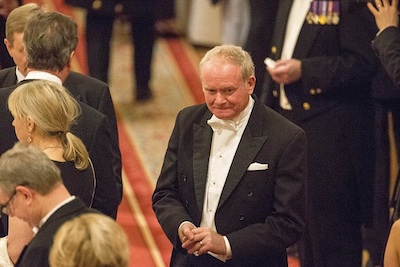
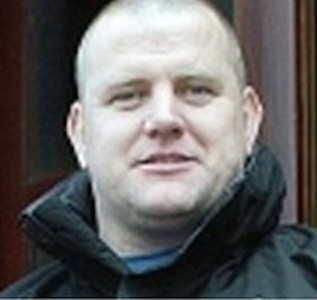
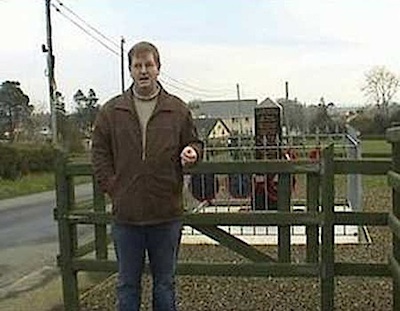
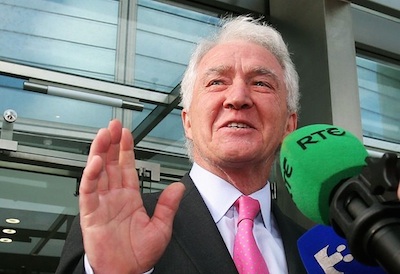
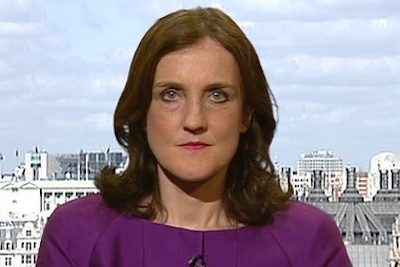 Theresa Villiers, who implements British Direct Rule in Ireland, has set out a sharply pro-unionist agenda for her government in dealing with the past conflict in the Six Counties.
Theresa Villiers, who implements British Direct Rule in Ireland, has set out a sharply pro-unionist agenda for her government in dealing with the past conflict in the Six Counties.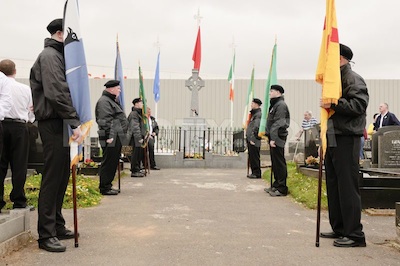 Colour party uniforms belonging to Republican Sinn Fein due to be used during an annual easter commemoration in Lurgan this Saturday have been seized during police raids in Craigavon.
Colour party uniforms belonging to Republican Sinn Fein due to be used during an annual easter commemoration in Lurgan this Saturday have been seized during police raids in Craigavon.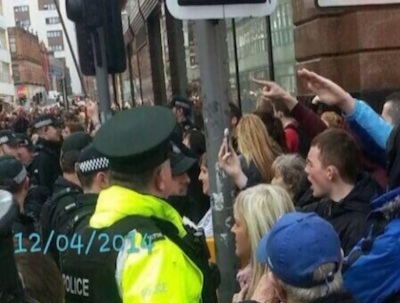 Loyalists greeted members of an Irish language rally last weekend with Nazi salutes.
Loyalists greeted members of an Irish language rally last weekend with Nazi salutes.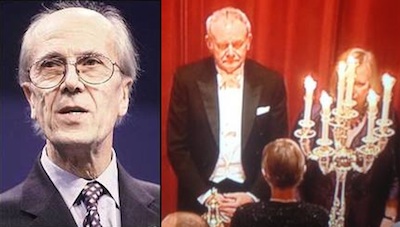 Efforts to boost reconciliation between the 26 County state and Britain during the formal visit to London by 26-County President Michael D Higgins were undermined by a leading Tory’s call this week for the murder of Sinn Fein’s Martin McGuinness.
Efforts to boost reconciliation between the 26 County state and Britain during the formal visit to London by 26-County President Michael D Higgins were undermined by a leading Tory’s call this week for the murder of Sinn Fein’s Martin McGuinness.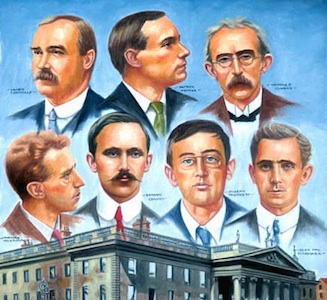 The Dublin and London governments have signalled a major effort to combat nationalist sentiment in the run-up to the anniversary of the 1916 Rising following this week’s heavily promoted state visit to London by 26-County President Michael D Higgins.
The Dublin and London governments have signalled a major effort to combat nationalist sentiment in the run-up to the anniversary of the 1916 Rising following this week’s heavily promoted state visit to London by 26-County President Michael D Higgins.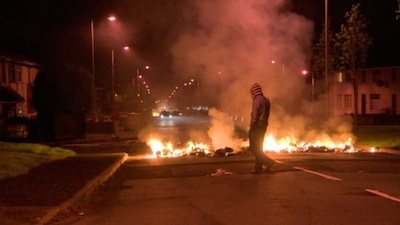 The unionist paramilitary UDA are understood to be planning riots this weekend in the town of Carrickfergus, in County Antrim following serious disturbances last night.
The unionist paramilitary UDA are understood to be planning riots this weekend in the town of Carrickfergus, in County Antrim following serious disturbances last night.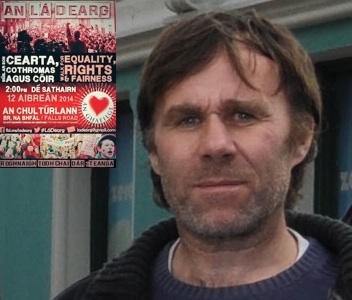 Recent protests over discrimination against Irish language speakers in the north of Ireland are to reach a climax on Saturday with a major demonstration through Belfast city centre.
Recent protests over discrimination against Irish language speakers in the north of Ireland are to reach a climax on Saturday with a major demonstration through Belfast city centre.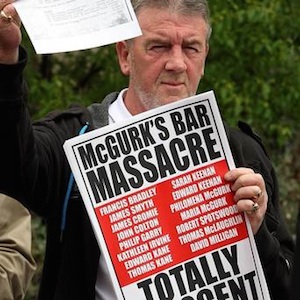 Families of those killed in the McGurk’s Bar massacre have succeeded in forcing the British authorities to release an unedited report into the bombing, it has been confirmed.
Families of those killed in the McGurk’s Bar massacre have succeeded in forcing the British authorities to release an unedited report into the bombing, it has been confirmed. A committee of the Dublin parliament has recommended that Travellers be recognised as an ethnic minority to combat discrimination as the issue begins featuring in local election campaigns in the 26 Counties.
A committee of the Dublin parliament has recommended that Travellers be recognised as an ethnic minority to combat discrimination as the issue begins featuring in local election campaigns in the 26 Counties.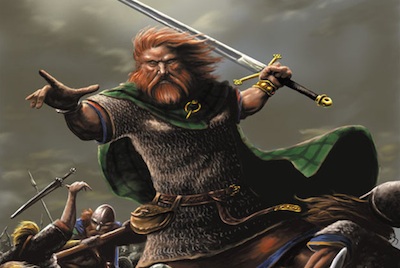 A struggle to free Ireland of foreign domination resulted in a heroic victory -- but the death of a great Irish leader -- a thousand years ago this week.
A struggle to free Ireland of foreign domination resulted in a heroic victory -- but the death of a great Irish leader -- a thousand years ago this week.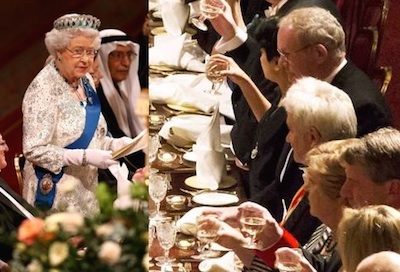 Relations between Britain and Ireland have now entered the realm of the surreal.
Relations between Britain and Ireland have now entered the realm of the surreal.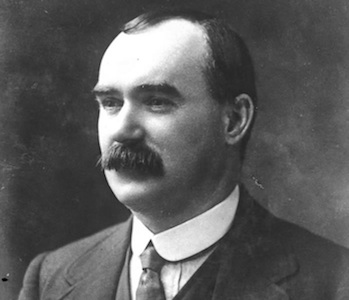 It is obviously a matter for Sinn Fein who they meet but from the outside this looks like another ‘leadership initiative’ which has nothing to do with improving the material conditions of the working class or advancing towards the Republic.
It is obviously a matter for Sinn Fein who they meet but from the outside this looks like another ‘leadership initiative’ which has nothing to do with improving the material conditions of the working class or advancing towards the Republic.





